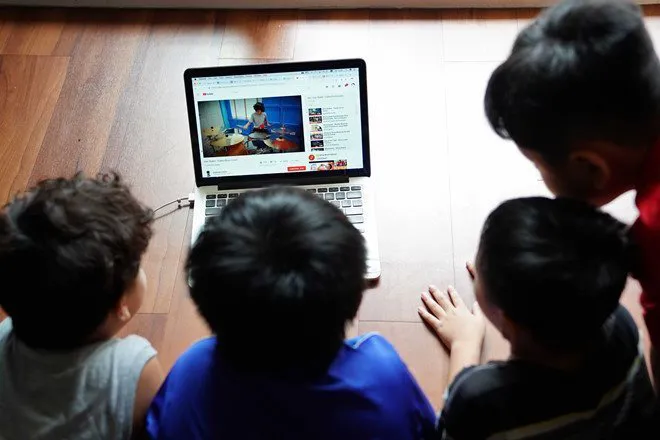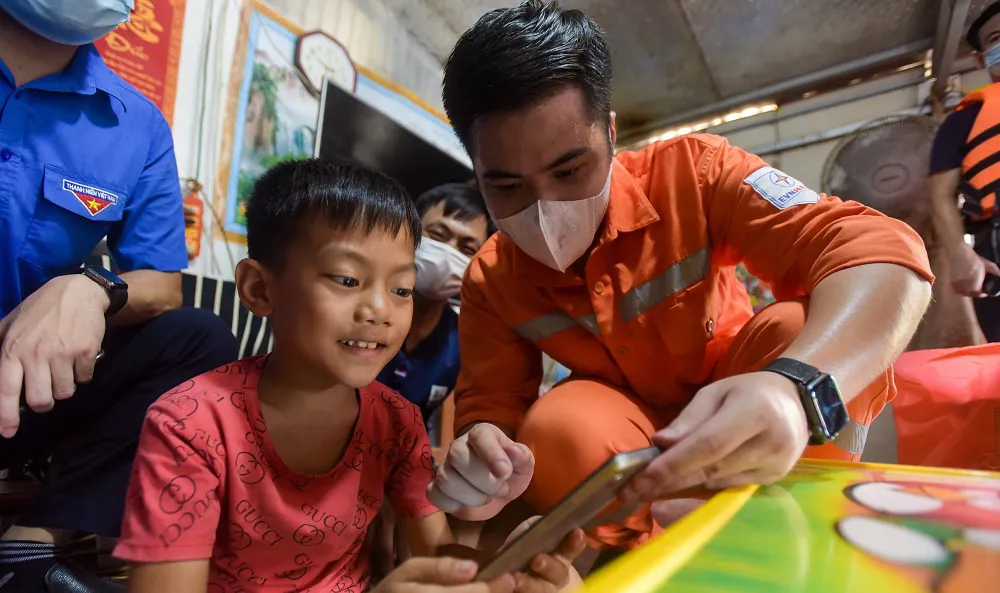Vietnam protects children from cyberspace risks
Local experts said children should be active participants in decision-making, not just a subject protected by adults.
Vietnam has made great efforts to protect children in cyberspace amid increasing access to the Internet during the Covid-19 pandemic, according to the Vietnam Information Security Association (VNISA).
| Children must be protected online. Photo: Vietnam's Ministry of Information and Communications |
VNISA released the information as it is hosting the contest entitled “Pupils with information security 2022”, which aims to disseminate among the children knowledge and skills to use the Internet safely.
Launched from June 2021 to April 2022 for secondary schoolchildren, the contest created a useful playground for students and promote their thinking ability, helping them identify, prevent, and avoid unsafe risks in the online environment.
The contest has gained response among pupils nationwide, drawing the participation of nearly 600,000 students from more than 5,700 schools in all 63 cities and provinces across the nation. Hanoi took the lead in the number of participants with more than 125,000 or 20% of the total candidates. It’s expected to become an annual contest for the meaning it conveys.
The contest, which is part of activities in the national program on child protection online approved by the Prime Minister in June 2021, caught the attention of different agencies, including the Ministry of Information and Communications, the Ministry of Education and Training, the Ministry of Labor, Invalids and Social Affairs, and Plan International Vietnam.
Le Quynh Lan, Manager of Program Impact and Partnership, Plan International Vietnam, shared that protecting children in the current digital age is a huge challenge and requires the joint efforts of different stakeholders.
In areas inhabited by a large number of ethnic minorities, such as Ha Giang, Lai Chau and other provinces where Plan International Vietnam is implementing projects, children still face various difficulties, mainly in accessing information. “For that reason, in Plan’s programs, we want to give them extra support to ensure that they will have an equal opportunity to access information or get support to better avoid risks,” Lan said on the occasion of the contest closing last weekend.
She highlighted Plan’s priorities which not only focus on raising awareness but helping and connecting abused children with child protection services to create an overall child protection circle. To that point, children are active participants in decision making, not just a subject protected by adults, she noted.
| Vietnam Electricity (EVN) grants tablets to vulnerable children in Hanoi for online learning. Photo: Khanh Huy/ The Hanoi Times |
Child protection in law
The latest current Law on Cybersecurity of 2018 provides strict network security protection regulations, along with rules for handling violations in order to improve order maintenance and network security protection. The goal is to create healthy and safe cyberspace for Vietnamese citizens.
Article 29 of Vietnam’s Cybersecurity Law 2018 stipulates that children have the right to be protected, to access information, to participate in social activities, to have fun and recreation, and to maintain their personal privacy and other rights when participating in cyberspace, according to Stephen Le from Le & Tran Trial Lawyers.
Owners of information systems, service providers on telecommunications networks, the Internet, and value-added services on cyberspace are responsible for controlling content on the information system or on services provided through the Internet.
Enterprises must avoid causing harm to children or infringing upon children’s rights. They must also prevent sharing and deleting information with contents harmful to children, those that infringe upon children’s rights, as well as promptly notify and coordinate with the specialized cyber security force under the Ministry of Public Security for handling.
Agencies, organizations, and individuals participating in activities in cyberspace are responsible for coordinating with the competent agencies in protecting children’s rights in cyberspace, and stopping information with content harmful to children in accordance with this Law and the laws on children.
Agencies, organizations, parents, teachers, caregivers, and other relevant individuals have the responsibility to ensure the rights of children and to protect them when participating in cyberspace as prescribed by the laws on children.
The specialized cybersecurity protection force and functional agencies are responsible for applying measures to prevent, detect, stop and strictly process cyberspace violations that are harmful to children or infringe upon them or their rights.










